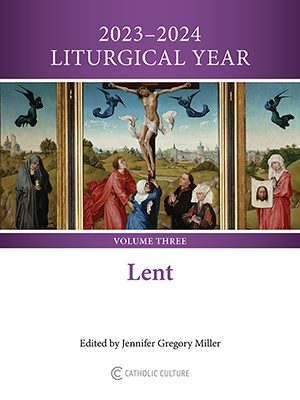Bishop defends social justice against critics
September 08, 2010
A Connecticut bishop has defended the concept of social justice against critics who “have been telling Catholics to eliminate the term ‘social justice’ from any organization that speaks on Catholic social justice or has this expression as part of its title.” Auxiliary Bishop Peter Rosazza of Hartford is likely referring to comments made earlier this year by radio and television host Glenn Beck, a Catholic who converted to Mormonism.
“Social justice is an integral part of official Catholic teaching,” Bishop Rosazza writes, adding:
[I]t is wrong to confuse socialism with Catholic social teaching. Pope John Paul II, no friend of socialism or of unfettered capitalism for that matter, wrote in 1991: "The social doctrine of the Church developed in the nineteenth century when the Gospel encountered modern industrial society with its new structures for the production of consumer goods, its new concept of society, the state and authority and its new forms of labor and ownership. The development of the doctrine of the Church on economic and social matters attests to the permanent value of the Church's teaching at the same time as it attests to the true meaning of her Tradition, always living and active" (Centesimus Annus, 3). This text is found in the Catechism of the Catholic Church, No. 2421.
Catholic social-justice teaching is based on two fundamental principles: the dignity of every human being and our solidarity with each other. These principles must be kept together. Too much emphasis on dignity can lead to individualism and a morbid sense of the self; and too much emphasis on solidarity can lead to collectivism at the expense of individuals and their rights.
Ultimately our social-justice teaching, ever since St. Thomas Aquinas, who died in 1274, integrated Aristotle's concept of the common good into his writings. We are inspired through the teaching of Sacred Scripture, in particular the Prophets who demanded in God's name that the society, not just individuals, take care of the poor, the sick and the foreigner. Jesus by his teachings and actions was imbued by the prophetic tradition.
For all current news, visit our News home page.
Further information:
- A Catholic view of social justice (Waterbury Republican American)
- Christians Rip Glenn Beck Over 'Social Justice' Slam (ABC)
All comments are moderated. To lighten our editing burden, only current donors are allowed to Sound Off. If you are a current donor, log in to see the comment form; otherwise please support our work, and Sound Off!
-
Posted by: samuel.doucette1787 -
Sep. 09, 2010 8:19 AM ET USA
Good for Bishop Rosazza! I am re-familiarizing myself with the richness of Catholic social teaching through Dr Rupert Ederer's excellent book: Economics as if God Matters. Papal teaching on social issues cuts against both extremes: the far left's preference for socialism and state control and the far right's preference for laissez faire capitalism. Our bishops have become too intellectually lazy however, tending to fall into a default "federal programs good" position on social issues.
-
Posted by: jimtotter -
Sep. 08, 2010 5:32 PM ET USA
True justice is always personal. In this regard, an act of charity is the act of personal giving, not a government mandate taking taxes to require a distribution of goods.
-
Posted by: DrJazz -
Sep. 08, 2010 3:07 PM ET USA
Priests and Bishops need to preach about social justice (the real deal, not government aid programs) from the pulpit now and then, instead of letting the secular media define the term. The next homily I hear about social justice will be the first I've ever heard. Leo XIII and Pius XI were talking about social justice long before modern-day feminism or Vatican II. I generally like and agree with Beck most of the time, but maybe he should have read some s-j encyclicals before leaving the Church.
-
Posted by: rpp -
Sep. 08, 2010 2:07 PM ET USA
"The poor will always be with you." John 12:8 Forced charity, via taxes, is NOT just and therefore not part of authentic social justice. Authentic "social justice" must be voluntary for both the giver and the receiver. It is better referred to as corporeal acts of mercy.
-
Posted by: -
Sep. 08, 2010 12:16 PM ET USA
The term social justice has too many negative conotations. It is has strings to the unorthodox in the Church, feminism, Vatican II revisers. Why don't we just use charity. That after all is what so called social justice is about.
-
Posted by: -
Sep. 08, 2010 11:57 AM ET USA
If we called it by the proper term, distributive justice, then maybe Beck would not be so biased against the term.
-
Posted by: elle -
Sep. 08, 2010 10:59 AM ET USA
It's not so much about "social Justice" as it is about Redistribution of wealth.
-
Posted by: -
Sep. 08, 2010 7:51 AM ET USA
I thought the two principles of Catholic social teaching were the principle of solidarity and the principle of subsidiarity.








